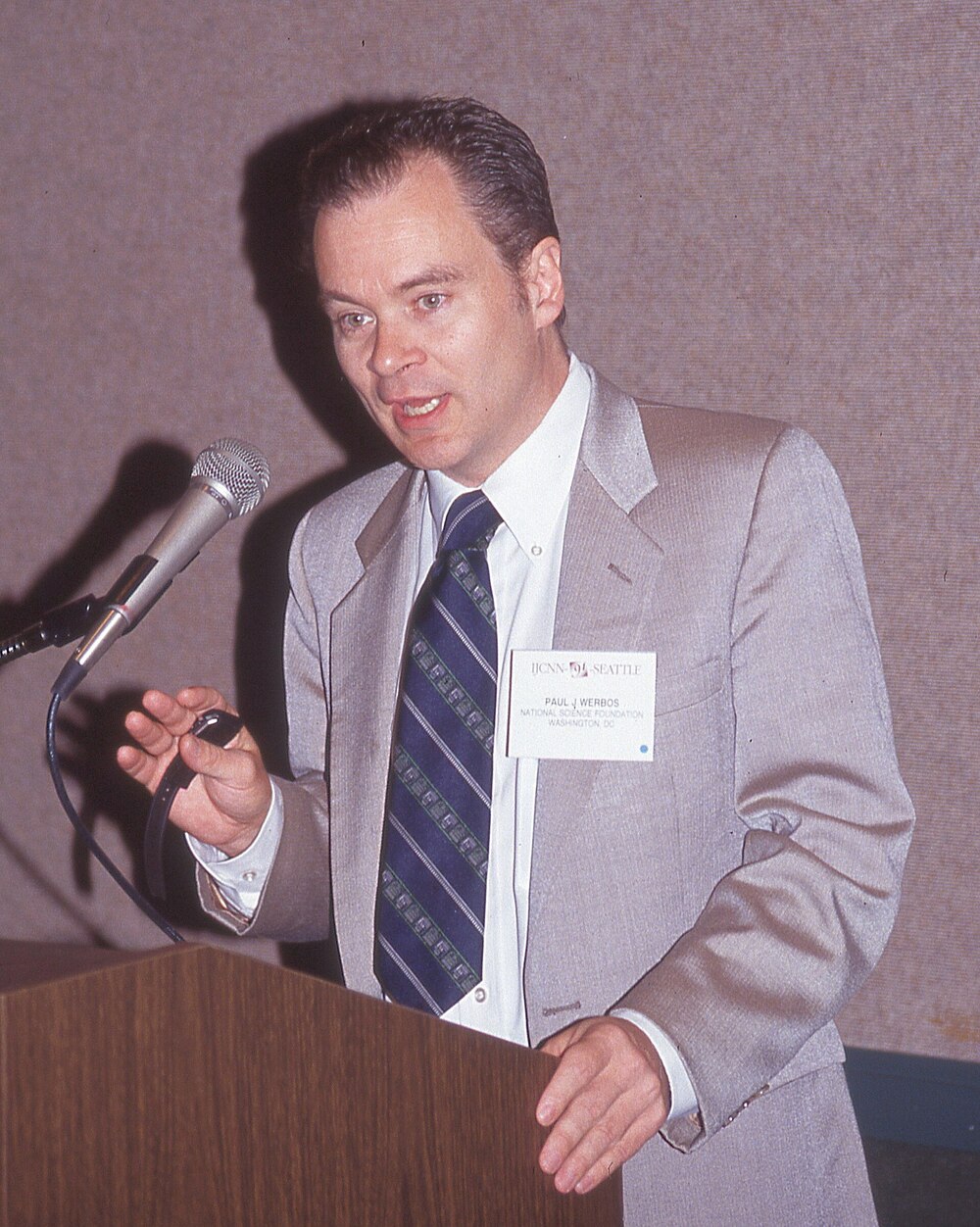Dr. Paul John Werbos
Dr. Paul John Werbos is a Program Director of ECS at the US National Science Foundation (NSF). He has core responsibility for the Adaptive and Intelligent Systems (AIS) area within the Power, Controls and Adaptive Networks (PCAN) Program of ECS, and for the new area of Quantum, Molecular and High-Performance Modeling and Simulation for Devices and Systems. He is the ECS representative for the CLEANER initiative, for biocomplexity (MUSES), and for Collaborative Research in Computational NeuroScience.
He is one of the two ECS representatives for cyberinfrastructure. He has special interest in efforts to exploit higher levels of true computational intelligence in these areas, and in efforts which can seriously increase the probability that we achieve global sustainability. In 1994, he initiated an SBIR topic on fuel cell and electric cars which he coordinated for several years. He was part of the group which proposed and led NSF’s earlier initiative in Learning and Intelligent Systems, and assisted the follow-on in Information Technology Research.
Paul is an elected member of the Administrative Committee (AdCom) of the IEEE Computational Intelligence Society, which he represents on the IEEE-USA Energy Policy Committee. He also serves on the AdCom of the IEEE Industrial Electronics Society, and the Governing Board of the International Neural Network Society (INNS). He was one of the three original two-year Presidents of INNS. He is a Fellow of the IEEE, and has won its Neural Network Pioneer Award, for the discovery of the “backpropagation algorithm” and other basic neural network learning designs.
He also serves on the Planning Committee of the ACUNU Millennium Project, whose annual report on the future tends to lead global lists of respected reports on the long-term future. In 2002, he and John Mankins of NASA initiated and ran the NASA-NSF-EPRI initiative on enabling technologies for space solar power. In 2003, he participated on the interagency working group for the Climate Change Technology Program. At the 2005 Space Development Conference in Arlington, he was invited to present a new strategy for sustainable exploration and development of space, drawing in part on previous work funded by NSF.
In addition to his core interests at NSF, Paul has interest in larger questions relating to consciousness, the foundations of physics, and human potential; see his personal web page, www.werbos.com for details. His 1974 Harvard Ph.D. thesis has been reprinted in its entirety, along with related papers, in his book The Roots of Backpropagation: From Ordered Derivatives to Neural Networks and Political Forecasting. Some of work on high performance computing is described in Automatic Differentiation: Applications, Theory and Implementations.
Paul authored Using ADP to Understand and Replicate Brain Intelligence: the Next Level Design, What is Mind? What is Consciousness? How Can We Build and Understand Intelligent Systems?, What is Reality? How can we discover the ultimate physical/mathematical laws which govern its evolution in time — or govern its state across space-time, What is Life? How does it work?, Sustainability on Earth: What Must We Change In Order to Survive?, Humans in Space: Goals, Strategy and Technology Options, and Human potential — growth/learning in brain, soul, integration (body), coauthored Energy Dependence and Co2: Nearest-Term Opportunities for a Dramatic Reduction (online PPT) and The Handbook of Applied Neurocontrols, and coedited Neural Networks for Control.
He holds four degrees from Harvard and the London School of Economics in: (1) economics; (2) international political systems, emphasizing European economic institutions; (3) applied mathematics, with a major in quantum physics and a minor in decision and control; (4) applied mathematics for an interdisciplinary PhD. Prior to that, during high school, he obtained an FCC First Class Commercial Radiotelephone license, and took undergraduate and graduate mathematics courses at Princeton and the University of Pennsylvania.
Enter Werbos World!
